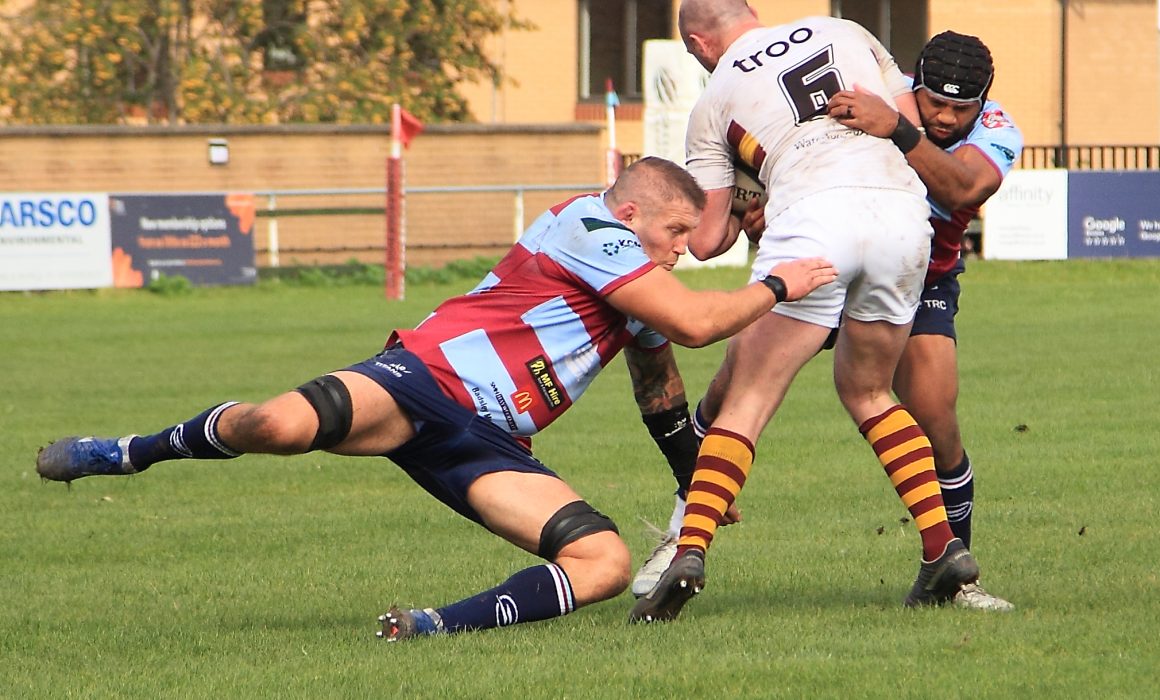Independent study involving World Rugby brings a better perspective around head injuries
Last week, World Rugby chairman Sir Bill Beaumont welcomed results from the largest-ever studies into the forces experienced by rugby players when playing the game. (Photo Credit: Gareth Siddons)
At all levels, including in the high-octane environment of National League Rugby, player safety is paramount and the results will hopefully provide players and parents with more confidence in the safety of our sport as a whole.
The Otago Community Head Impact Detection study (ORCHID) – a joint project between World Rugby, Prevent Biometrics, New Zealand Rugby, Otago Rugby and the University of Otago – published the first independent, peer-reviewed findings into community rugby following almost two years of research.
The study measures over 17,000 separate head acceleration events across more than 300 players from senior rugby through to U13s level.
This work was followed by the Elite Extension of the ORCHID study in partnership with Premiership Rugby and Ulster University.
Both studies used smart mouthguard technology, supplied by Prevent Biometrics, to understand the forces on the head experienced by players both in matches and in training The mouthguards measure g-forces which are experienced for less time than it takes to blink, using technology independently verified both in research laboratories and on the field of play.
As published on World Rugby’s website:
The ORCHID paper shows that in the men’s community game:
- 86 per cent of forces measured are the same as or less than those experienced in other forms of exercise such as running, jumping or skipping
- 94 per cent of forces are lower than those previously measured on people riding a rollercoaster
- The large majority of events resulting in the highest measured forces are as a result of poor technique in the tackle and at the breakdown
The Elite Extension study also showed that:
- Most contact events in elite rugby do not result in any significant force to the head.
- Where low, medium and high force events do occur they are most common in tackles and carries, followed by rucks
- Both men’s and women’s forwards were more likely to experience force events than backs
World Rugby has already used preliminary findings from the ORCHID study to inform trials of a lower tackle height in the community game. The international federation has also expanded and enhanced the range of training for players and coaches available for free online including the Tackle Ready and new Breakdown Ready programmes.
At the elite level, in a world first, World Rugby announced in October that smart mouthguards will be added to the Head Injury Assessment (HIA) protocols from January 2024.
Dr Melanie Bussey, Associate Professor in Biomechanics at the University of Otago said: “Our ultimate goal as researchers is to make a meaningful impact through our work. Therefore, we are extremely pleased to see our work integrated into new strategies and guidelines designed to enhance player safety. We appreciate World Rugby’s approach, which granted us the time to ensure robustness in our analysis and the autonomy to let the data speak for itself.
“Looking ahead, we believe that Smart mouthguard technology holds immense potential for advancing player safety and performance analysis in rugby and beyond. Our research has opened doors to a wealth of insights, and we are committed to further exploring this innovative field. We envision continued collaboration with World Rugby and other stakeholders to harness the full potential of this technology, driving advancements that will benefit players and the sport as a whole.”
World Rugby’s Sir Bill Beaumont added: “Using the latest research and technology is at the heart of our six-point plan to make rugby the most progressive sport in the world on player welfare. These studies are concrete proof that World Rugby is putting our time, energy and efforts into backing up our words and the insights gained are already helping us make evidence-led moves to make the sport even safer. We will never stand still on player welfare.
“I’d like to thank the players all across the world who took part in the study, what they have helped to shed light on will be invaluable in advancing player welfare in rugby at all levels. Using this data we can say with some certainty that community and elite level rugby are very much the same game, but played very differently.”
The ORCHID first papers from the ORCHID study can be read here
The Elite Extension to the ORCHID study can be viewed here

